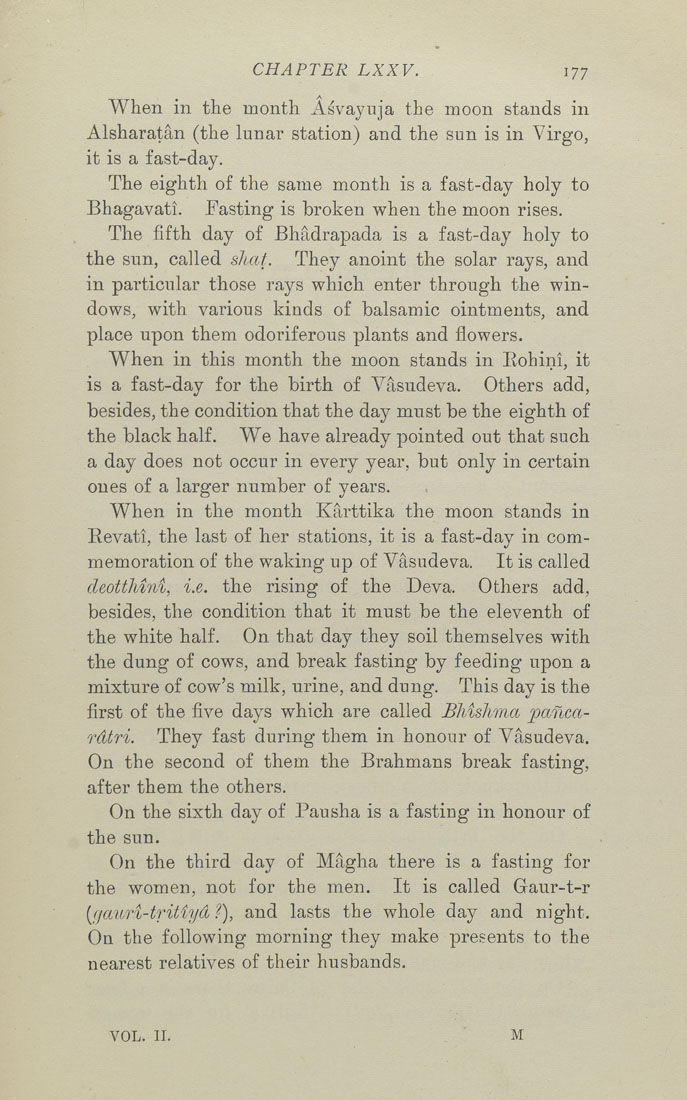CHAPTER LXXV. 177
When in the month Asvayuja the moon stands in
Alsharatan (the lunar station) and the sun is in Virgo,
it is a fast-day.
The eighth of the same month is a fast-day holy to
Bhagavati. Fasting is broken when the moon rises.
The fifth day of Bhadrapada is a fast-day holy to
the sun, called shctf. They anoint the solar rays, and
in particular those rays which enter through the win¬
dows, with various kinds of balsamic ointments, and
place upon them odoriferous plants and flowers.
When in this month the moon stands in Rohini, it
is a fast-day for the birth of Vasudeva. Others add,
besides, the condition that the day must be the eighth of
the black half. We have already pointed out that such
a day does not occur in every year, but only in certain
ones of a larger number of years.
When in the month Karttika the moon stands in
Revati, the last of her stations, it is a fast-day in com¬
memoration of the waking up of Vasudeva. It is called
deotthini, i.e. the rising of the Deva. Others add,
besides, the condition that it must be the eleventh of
the white half. On that day they soil themselves with
the dung of cows, and break fasting by feeding upon a
mixture of cow's milk, urine, and dung. This day is the
first of the five days which are called Bhishma pctficct-
rdtri. They fast during them in honour of Vasudeva.
On the second of them the Brahmans break fasting,
after them the others.
On the sixth day of Pausha is a fasting in honour of
the sun.
On the third day of Magha there is a fasting for
the women, not for the men. It is called Gaur-t-r
(gaitri-tritiyd ?), and lasts the whole day and night.
On the following morning they make presents to the
nearest relatives of their husbands.
VOL. IL M
|








